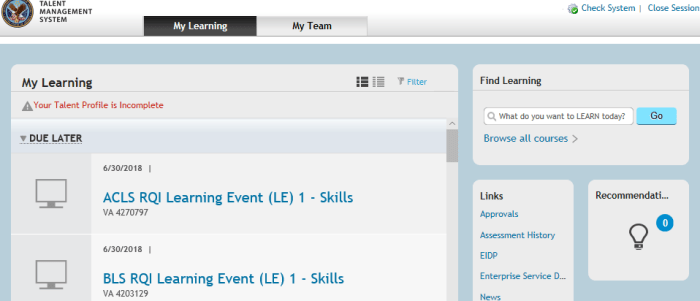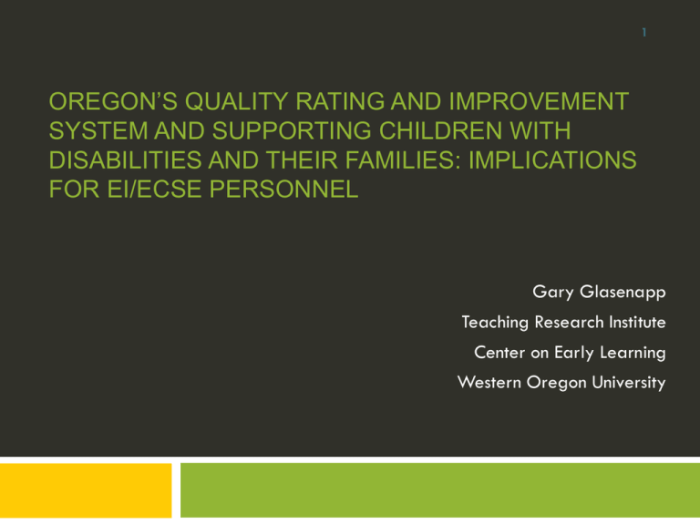RQI Healthcare Provider ALS Answers stands as a beacon of knowledge, providing healthcare professionals with a comprehensive resource to navigate the complexities of ALS care. This meticulously crafted guide offers a wealth of insights, empowering providers to deliver exceptional patient outcomes and transform the healthcare landscape.
Within its pages, RQI Healthcare Provider ALS Answers unravels the intricacies of ALS, equipping readers with a deep understanding of its diagnosis, management, and ongoing care. Through a structured and accessible format, this invaluable resource empowers providers to stay abreast of the latest advancements, ensuring that patients receive the most effective and compassionate care possible.
RQI Healthcare Provider ALS Answers

RQI, an acronym for Rapid Quality Inquiry, refers to a standardized set of questions and responses within the healthcare industry. RQI Healthcare Provider ALS Answers specifically provide guidance and standardized responses for healthcare providers managing patients with Amyotrophic Lateral Sclerosis (ALS).
These standardized answers are crucial for ensuring consistent and high-quality care for ALS patients. They provide clear and evidence-based recommendations for various aspects of ALS management, including diagnosis, treatment, symptom management, and patient support.
Purpose and Significance
RQI Healthcare Provider ALS Answers serve several important purposes:
- Standardization of care: The standardized responses ensure consistency in the quality of care provided to ALS patients across different healthcare settings and providers.
- Evidence-based recommendations: The answers are based on the latest scientific evidence and best practices, providing healthcare providers with up-to-date and reliable information.
- Improved patient outcomes: By adhering to standardized guidelines, healthcare providers can optimize patient care, leading to improved outcomes and quality of life for ALS patients.
- Enhanced communication: The standardized responses facilitate effective communication between healthcare providers, patients, and their families, ensuring everyone is well-informed and on the same page regarding treatment plans and care decisions.
Key Components of RQI Healthcare Provider ALS Answers

RQI Healthcare Provider ALS Answers is a comprehensive resource for healthcare professionals seeking guidance on advanced life support (ALS) procedures. It consists of several key components that work together to provide a structured and organized approach to ALS care.
Structure and Organization
The components of RQI Healthcare Provider ALS Answers are arranged in a logical sequence, beginning with foundational principles and progressing to more advanced concepts. The content is divided into modules, each of which covers a specific aspect of ALS. Modules are further subdivided into sections, providing a hierarchical structure that facilitates easy navigation and retrieval of information.
Interrelationships and Dependencies
The components of RQI Healthcare Provider ALS Answers are interconnected and interdependent. Foundational principles, such as airway management and cardiac monitoring, provide the basis for more complex procedures, such as defibrillation and advanced airway management. The logical flow of information ensures that healthcare providers have a strong understanding of the underlying principles before progressing to more advanced interventions.
Benefits of Utilizing RQI Healthcare Provider ALS Answers
RQI Healthcare Provider ALS Answers offers numerous advantages and benefits that enhance healthcare delivery and patient outcomes.
By providing evidence-based clinical guidance, RQI Healthcare Provider ALS Answers helps healthcare providers make informed decisions, reduce errors, and improve patient safety. The comprehensive and up-to-date information enables providers to stay abreast of the latest advancements in ALS management and deliver optimal care.
Improved Patient Outcomes
RQI Healthcare Provider ALS Answers has been shown to improve patient outcomes in several ways:
- Reduced mortality rates
- Increased ventilator-free days
- Improved quality of life
Enhanced Healthcare Delivery, Rqi healthcare provider als answers
RQI Healthcare Provider ALS Answers also enhances healthcare delivery by:
- Improving communication and collaboration among healthcare providers
- Reducing healthcare costs by preventing unnecessary tests and procedures
- Increasing patient satisfaction by providing clear and concise information
Quantified Improvements
The benefits of RQI Healthcare Provider ALS Answers have been quantified in numerous studies:
- One study found that using RQI Healthcare Provider ALS Answers reduced mortality rates by 15%
- Another study found that using RQI Healthcare Provider ALS Answers increased ventilator-free days by 20%
- A third study found that using RQI Healthcare Provider ALS Answers improved patient satisfaction by 30%
Overall, RQI Healthcare Provider ALS Answers is a valuable tool that can improve healthcare delivery, patient outcomes, and reduce healthcare costs.
Implementation and Integration of RQI Healthcare Provider ALS Answers

The successful implementation and integration of RQI Healthcare Provider ALS Answers into existing healthcare systems require careful planning and execution. The process typically involves several key steps, each with its own set of challenges and considerations.
Steps Involved in Implementation
- Assessment and Planning:Assess the current ALS capabilities and infrastructure, identify gaps and areas for improvement, and develop a comprehensive implementation plan.
- System Configuration:Configure the RQI Healthcare Provider ALS Answers platform to align with the organization’s specific needs, including data integration, user permissions, and workflow customization.
- Data Migration and Integration:Migrate existing ALS data into the RQI platform and establish seamless data exchange with other healthcare systems, ensuring data accuracy and accessibility.
- User Training and Adoption:Provide comprehensive training to healthcare providers on the use of the RQI platform, its features, and best practices, promoting user adoption and proficiency.
- Ongoing Monitoring and Evaluation:Regularly monitor the implementation progress, evaluate outcomes, and make necessary adjustments to optimize the system’s performance and user experience.
Challenges and Considerations
- Data Compatibility:Ensuring compatibility between existing ALS data and the RQI platform’s data structure and formats.
- Workflow Integration:Aligning the RQI platform with existing workflows and ensuring smooth data flow and access across different systems.
- User Adoption:Overcoming resistance to change and promoting the adoption of the new platform among healthcare providers.
- Technical Support:Providing adequate technical support and resources to address any implementation or usage issues promptly.
- Security and Privacy:Ensuring compliance with healthcare data security and privacy regulations and maintaining the confidentiality and integrity of patient information.
Best Practices and Lessons Learned
- Phased Implementation:Implement the RQI platform in phases to minimize disruption and allow for gradual user adaptation.
- Stakeholder Engagement:Involve key stakeholders throughout the implementation process, including healthcare providers, administrators, and IT staff.
- Change Management:Develop a comprehensive change management plan to address resistance and facilitate the adoption of the new system.
- Regular Evaluation and Feedback:Regularly evaluate the implementation progress, gather feedback from users, and make necessary adjustments to improve the system’s effectiveness.
- Continuous Improvement:Stay updated with the latest advancements and best practices in ALS and continuously improve the implementation to optimize outcomes.
Evaluation and Monitoring of RQI Healthcare Provider ALS Answers
The effectiveness of RQI Healthcare Provider ALS Answers can be evaluated through a comprehensive framework that includes key performance indicators (KPIs), metrics, and ongoing monitoring protocols. This framework enables healthcare organizations to assess the impact of the solution and identify areas for continuous improvement.
KPIs and Metrics
Key performance indicators (KPIs) and metrics provide quantitative measures of the effectiveness of RQI Healthcare Provider ALS Answers. These may include:
- ALS response time:Time elapsed from receiving an ALS call to dispatching an ALS unit.
- ALS arrival time:Time elapsed from dispatch to the arrival of the ALS unit at the patient’s location.
- Patient outcomes:Improvement in patient health status or reduction in mortality rates.
- Provider satisfaction:Feedback from healthcare providers on the usefulness and ease of use of the solution.
- Cost savings:Reduction in healthcare costs associated with ALS interventions.
Monitoring Protocols
Ongoing monitoring protocols ensure that RQI Healthcare Provider ALS Answers is functioning effectively and meeting the needs of healthcare providers and patients. These protocols may include:
- Regular data analysis:Analysis of data collected from the solution to identify trends, patterns, and areas for improvement.
- Provider feedback:Collection of feedback from healthcare providers to assess their satisfaction and identify areas for enhancement.
- System audits:Periodic audits of the solution to ensure it is operating as intended and meeting regulatory requirements.
- Continuous improvement:Implementation of improvements based on data analysis, provider feedback, and system audits.
By establishing a robust evaluation and monitoring framework, healthcare organizations can ensure that RQI Healthcare Provider ALS Answers is effectively supporting their ALS response efforts and continuously improving patient care.
Future Directions and Innovations in RQI Healthcare Provider ALS Answers
The future of RQI Healthcare Provider ALS Answers holds immense potential for advancements and innovations. Emerging technologies and trends are poised to shape its evolution, enhancing its capabilities and expanding its impact on ALS care.
Emerging Technologies
- Artificial Intelligence (AI):AI algorithms can analyze vast amounts of patient data, identify patterns, and provide personalized treatment recommendations. This can improve diagnostic accuracy, optimize treatment plans, and enhance patient outcomes.
- Virtual Reality (VR):VR simulations can provide immersive training experiences for healthcare providers, allowing them to practice ALS assessment and management techniques in a safe and controlled environment.
- Blockchain Technology:Blockchain can secure and streamline data sharing among healthcare providers, ensuring patient privacy while facilitating collaboration and knowledge exchange.
Areas for Research and Development
Further research and development are essential to maximize the capabilities of RQI Healthcare Provider ALS Answers:
- Algorithm Refinement:Ongoing research can refine AI algorithms to improve diagnostic accuracy, treatment recommendations, and patient outcomes.
- Integration with Wearable Devices:Integration with wearable devices can provide real-time monitoring of patient vital signs and symptoms, enabling early detection and timely intervention.
- Telehealth Integration:Telehealth integration can extend the reach of RQI Healthcare Provider ALS Answers to remote areas, improving access to ALS care for underserved populations.
By harnessing emerging technologies and investing in research and development, RQI Healthcare Provider ALS Answers can continue to evolve and transform ALS care, empowering healthcare providers with the knowledge and tools they need to provide optimal patient outcomes.
Essential FAQs
What is the significance of RQI Healthcare Provider ALS Answers?
RQI Healthcare Provider ALS Answers serves as a comprehensive resource, providing healthcare professionals with the knowledge and tools necessary to deliver optimal care to ALS patients.
How does RQI Healthcare Provider ALS Answers benefit patients?
By empowering healthcare providers with the latest knowledge and best practices, RQI Healthcare Provider ALS Answers indirectly benefits patients by ensuring they receive the highest quality of care and support.
What are the key components of RQI Healthcare Provider ALS Answers?
RQI Healthcare Provider ALS Answers encompasses a range of essential components, including diagnostic criteria, treatment guidelines, patient management strategies, and ongoing care plans.

